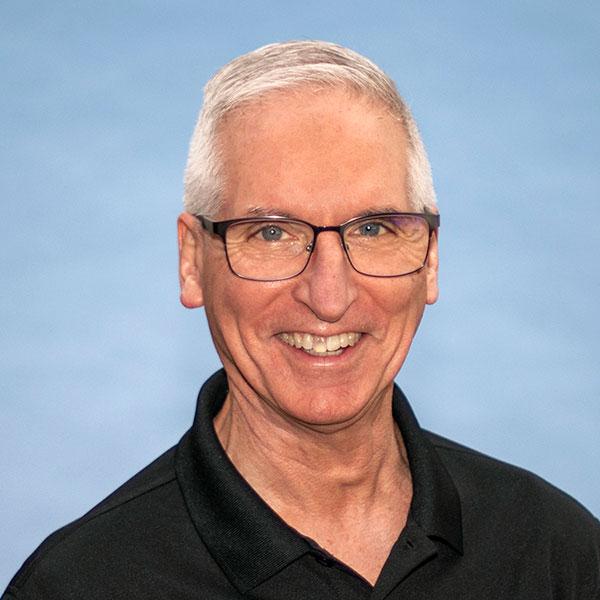
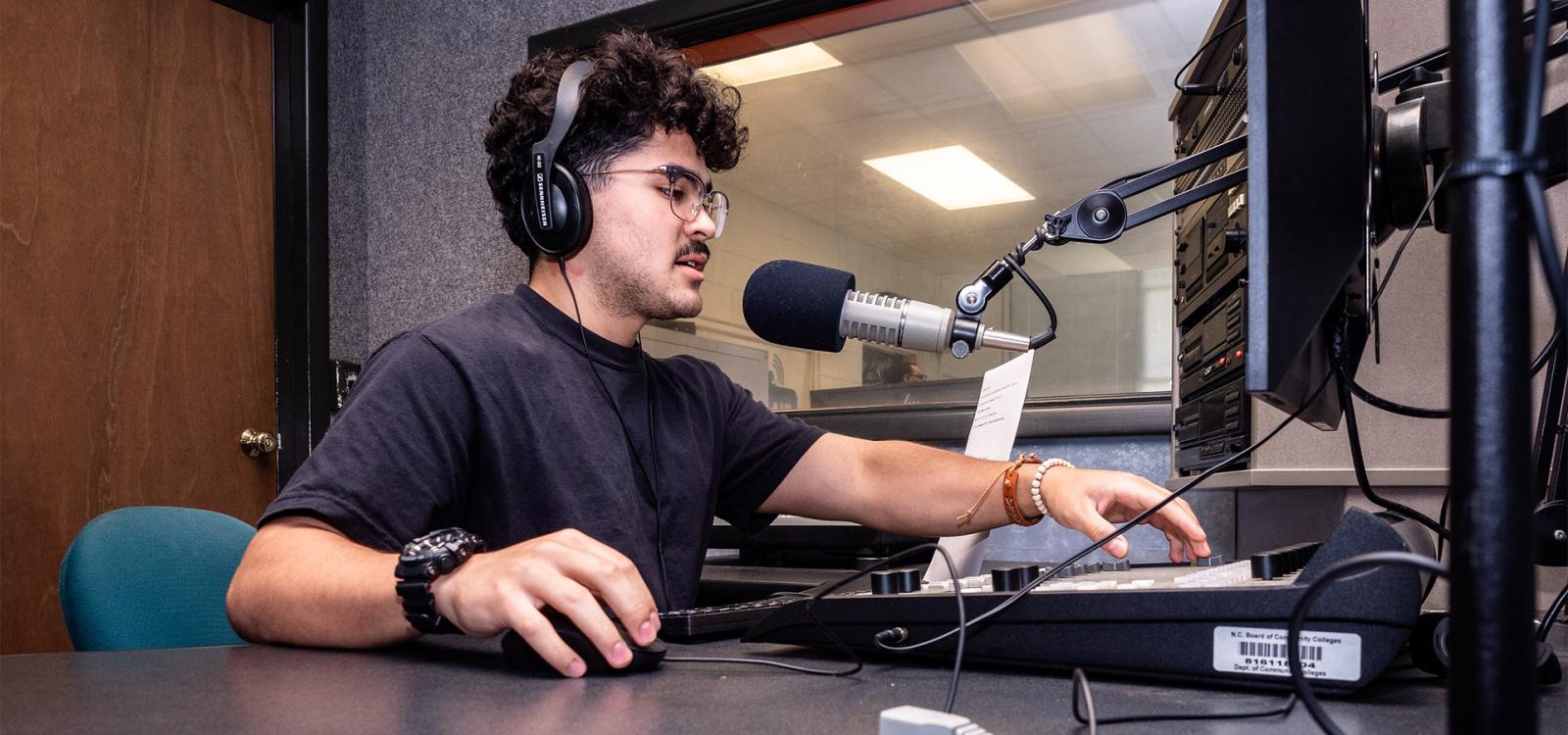
Audio and Video Production Technology
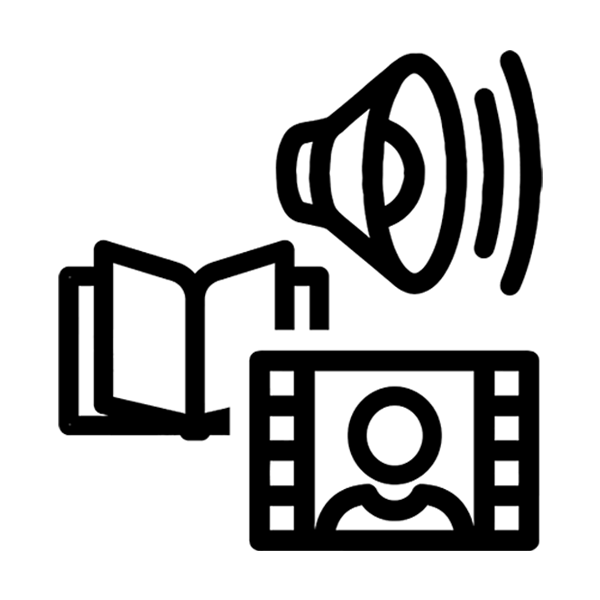
Arts
Prepare for a career in audio, video, and digital media production.
What You’ll Learn
Use the latest digital audio and video equipment, as well as professional editing software, as you learn the concepts and practical applications of media production. With hands-on training, you can apply what you’ve learned right away in state-of-the-art audio-video production studios.
Use the latest digital audio and video equipment, as well as professional editing software, as you learn the concepts and practical applications of media production. With hands-on training, you can apply what you’ve learned right away in state-of-the-art audio-video production studios.
Whether you’re already working in radio or new to the field, you’ll learn digital audio recording and mixing, microphone techniques, sound effects, Adobe Audition software, live announcing, and work on-air as a DJ. Students may qualify to continue for a full associate’s degree in audio and video production technologies.
Learn digital editing with Adobe Creative Suites, digital and multimedia production, directing, producing, HD video photography, shot composition, live studio productions, field production, video graphics, lighting design, digital video effects, plus broadcast writing and reporting of news and feature stories. Some graduates have continued to study digital filmmaking with the experience gained at CCCC.
Start with the basics and get an overview of audio and radio production, an introduction to social media content development, voice for audio, and audio production technologies. Upon completion, you will be able to use professional audio equipment to produce effective audio programming.
You can get an introduction to all aspects of video and television production, including on-air skills and behind-the-scenes production technologies and frameworks. You will also get an introduction to social media, marketing strategy, brand presence, blogging, social media analytics, and technical writing.
Why Study Audio and Video Production Technology at CCCC?
Radio and Television Stations
Students gain real-world experience by creating content for 4CNC-TV and LCGtv, as well as Charter Cable 192 and 193 (owned by Lee County and operated by the Audio and Video Production Technology Program). 4CNC-TV streams online and the Cablecast app on any streaming device.
Latest Technologies
Equipment used includes Canon prosumer and DSLR field cameras, AZO digital lighting, Award-winning RED studio cameras, a Tricaster control room system, and a Black Magic switcher. All post-production is on Adobe Creative Suite, including Premier, Audition, and After Effects.
Great Internship and Job Connections
Faculty members have strong working relationships with broadcasting and media arts employers throughout the region, including the Capitol Broadcasting Company, Curtis Media Group, Sinclair Broadcast Group, and more.
Experience the creative work of audio and video production.

More Helpful Links for This Program
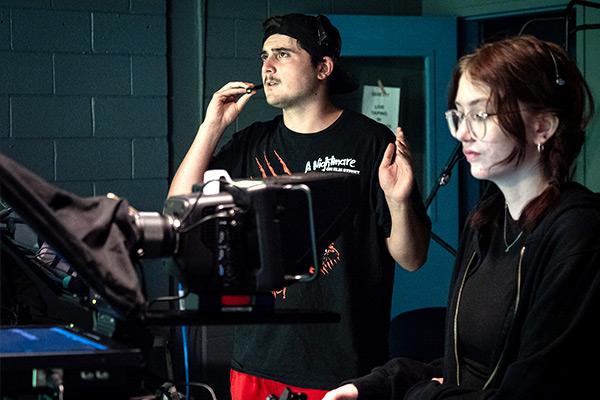
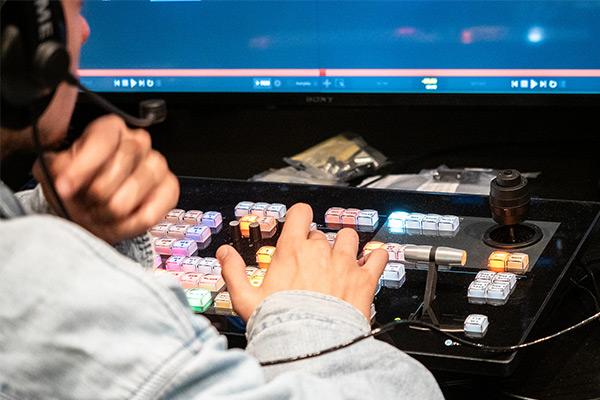
Careers
You’ll learn about the media industry, including existing business models and do-it-yourself opportunities, and prepare for jobs in:
- Media Networks and Streaming Distribution Services
- Social Media Content Development
- Communications and Marketing Firms
- Radio & Television Broadcasting
- Higher Education
- Performing Arts and Music Venues
- Sports Entertainment
Program Contact
-
 Audio and Video Production Technology Department ChairAudio and Video Production Technology
Audio and Video Production Technology Department ChairAudio and Video Production Technology
Our Students In Action
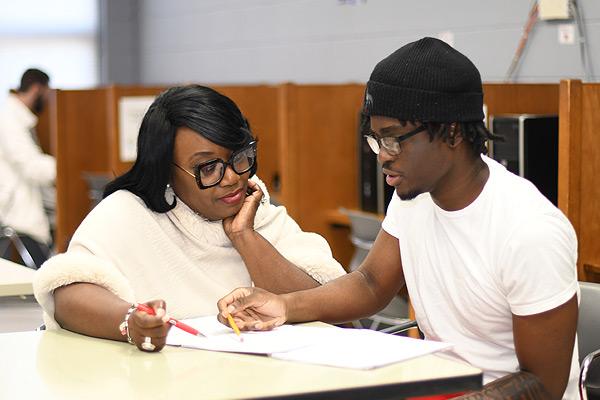
We’re Here to Help
Want to talk to an advisor about requirements and classes, or get more details on jobs in this industry?
Transfer Programs
Credits from select courses within the program may transfer to four-year colleges and universities on a case-by-case basis.